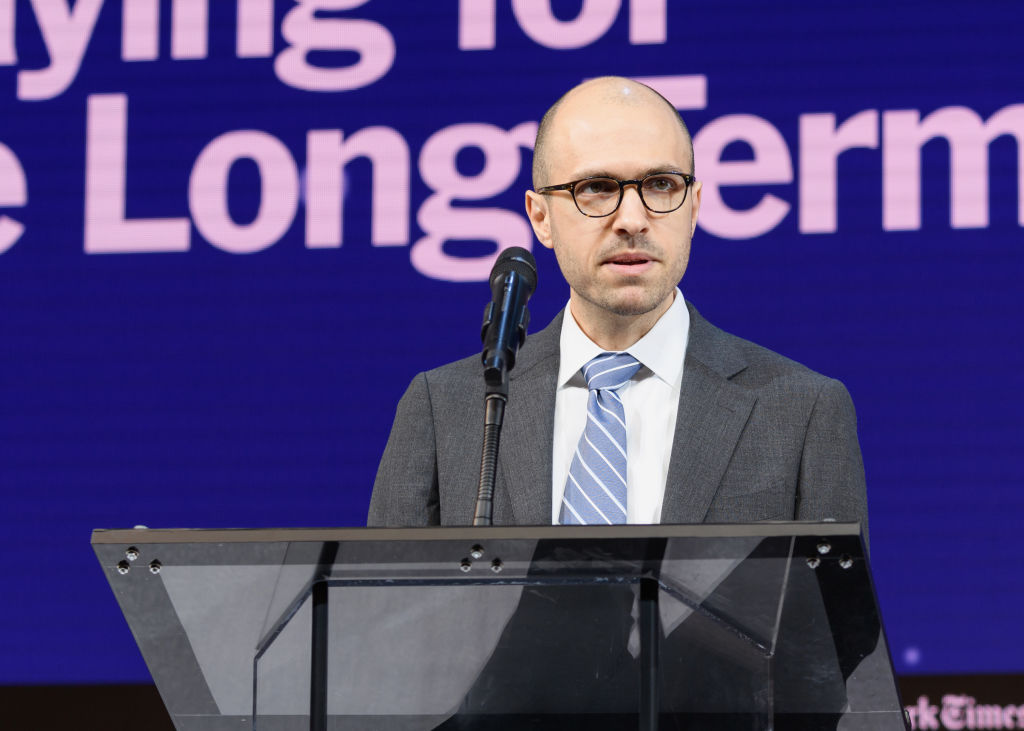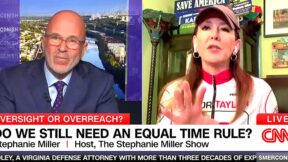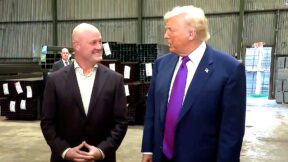NYT Publisher Claims Trump Admin Turned a Blind Eye to Press Freedom Threats From Egyptian Gov’t

New York Times publisher A.G. Sulzberger detailed two alarming anecdotes where, he claimed, the Trump administration turned a blind eye to physical threats to press freedom from Egypt’s authoritarian government.
According to Sulzberger’s essay, which was originally presented at a talk at Brown University, the administration failed to officially warn the newspaper when the Times’ Cairo-based correspondent was about to be arrested in 2017 and then appeared to side against the Times when another reporter was detained by Egyptian authorities upon arrival at the Cairo airport earlier this year.
Trump has earned a reputation for his friendly outreach to repressive regimes abroad, many of whom display antagonism if not outright repression toward independent journalists and critical media coverage. And he has shown a particular fondness for Egypt’s authoritarian leader, President Abdel Fattah Al Sisi. At last month’s G7 Summit, Trump reportedly called Sisi “my favorite dictator” during a meeting of the world leaders.
“The current administration,” Sulzberger said, “has retreated from our country’s historical role as a defender of the free press.”
“Let me tell you a story I’ve never shared publicly before,” he added.
“Two years ago, we got a call from a United States government official warning us of the imminent arrest of a New York Times reporter based in Egypt named Declan Walsh. Though the news was alarming, the call was actually fairly standard. Over the years, we’ve received countless such warnings from American diplomats, military leaders and national security officials.”
But this particular call took a surprising and distressing turn. We learned the official was passing along this warning without the knowledge or permission of the Trump administration. Rather than trying to stop the Egyptian government or assist the reporter, the official believed, the Trump administration intended to sit on the information and let the arrest be carried out. The official feared being punished for even alerting us to the danger.”
Lacking faith in US officials, the paper instead reached out to Walsh’s native country, Ireland, who provided diplomatic security that was able to help spirit the reporter out of Egypt before he could be arrested.
Sulzberger went on to offer another example of the Trump administration’s lack of commitment to press freedom. A year and a half after the incident involving Walsh, Sulzberger said another Times reporter, David Kirkpatrick, was detained upon arrival in the country by Egyptian authorities for an unflattering exposé about its government. When the paper protested through diplomatic channels, Sulzberger said a senior official at the US’s Egyptian Embassy expressed apathy at the journalist’s plight and even seemed to side with the repressive Sisi regime.
“What did you expect would happen to him?” Sulzberger recalled the embassy official replied. “His reporting made the government look bad.”
Sulzberger concluded his essay with a full-throated call to stand up for press freedom around the world.
“The United States has done more than any other country to popularize the idea of free expression and to champion the rights of the free press,” he said. “The time has come for us to fight for those ideals again.”
Photo credit of New York Times publisher, A.G. Sulzberger: Michael Cohen, Getty Images/New York Times.
New: The Mediaite One-Sheet "Newsletter of Newsletters"
Your daily summary and analysis of what the many, many media newsletters are saying and reporting. Subscribe now!






Comments
↓ Scroll down for comments ↓